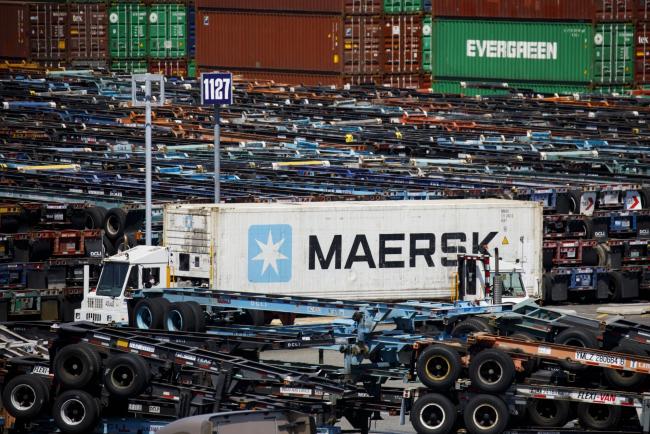This post was originally published on this site
https://i-invdn-com.akamaized.net/content/pic9b49c2153433b322b1c818e241f96502.jpg
(Bloomberg) —
A.P. Moller-Maersk A/S, the world’s largest container shipping company, said 2020 will be marred by “considerable uncertainties” due to the outbreak of the coronavirus and its impact on global trade.
The Copenhagen-based company expects its operating profit, or Ebitda, to reach about $5.5 billion this year, less than the $5.94 billion estimated by analysts.
Maersk said it expects a “weak start to the year,” due to the fallout of the virus, according to its fourth-quarter report on Thursday.
“The outlook for 2020 is impacted by the current outbreak of the coronavirus in China, which has significantly lowered visibility.”
Per Hansen, an investment economist at Nordnet in Copenhagen, called Maersk’s outlook “disappointing,” and said the fourth-quarter numbers were also “worse than expected.” He pointed to “loads of uncertainties,” including U.S.-China trade disputes and the fallout of the coronavirus on freight rates.
In 2019, Ebitda reached $5.71 billion, just shy of the $5.78 billion analysts had predicted.
Chief Executive Officer Soren Skou said the company’s “financial performance improved” last quarter, “albeit only marginally.”
“Despite weaker market conditions we were able to improve profitability and cash flow,” he said.
The coronavirus adds to a litany of challenges for the container shipping industry, which is already grappling with the fallout of U.S.-China trade tensions as well as persistent oversupply.
Since its outbreak, the coronavirus has disrupted global supply chains and hurt shipowners, as China grows into the maritime industry’s main source of cargo with 90% of all global trade moving by sea.
Read more: Ships Are Skipping China and It’s Causing Turmoil for Trade
Maersk said it expects global sea-borne container growth to be 1-3% in 2020 compared with 1.4% in 2019. The company expects its own growth rate to be in line “or slightly lower” than the market.
Maersk also listed new low-sulfur fuel that the industry has been forced to use from last month as an uncertainty that could impact bunker fuel prices and freight rates in 2020. It noted “weaker macroeconomic conditions” as an external uncertainty factor.
Maersk shares are down 11% this year compared with a 4% gain in the Index.
Maersk, which operates a fifth of the world’s container fleet, has in recent years tried to reduce its reliance on sea-borne shipping.
On Wednesday, the company said it agreed to buy U.S. warehousing and distribution company, Performance Team, as part of its strategy to expand land-based transport services. The deal is valued at $545 million.
These were some of the other highlights from Maersk’s annual report:
- FY revenue $38.9 billion, estimate $39.28 billion (range $38.56 billion to $39.97 billion)
- FY Ebit $1.73 billion, estimate $1.76 billion (range $1.54 billion to $1.96 billion)
- FY underlying profit $546 million
- FY dividend per share DKK150
(Adds details from report in last paragraph, analyst comment)
Fusion Media or anyone involved with Fusion Media will not accept any liability for loss or damage as a result of reliance on the information including data, quotes, charts and buy/sell signals contained within this website. Please be fully informed regarding the risks and costs associated with trading the financial markets, it is one of the riskiest investment forms possible.

